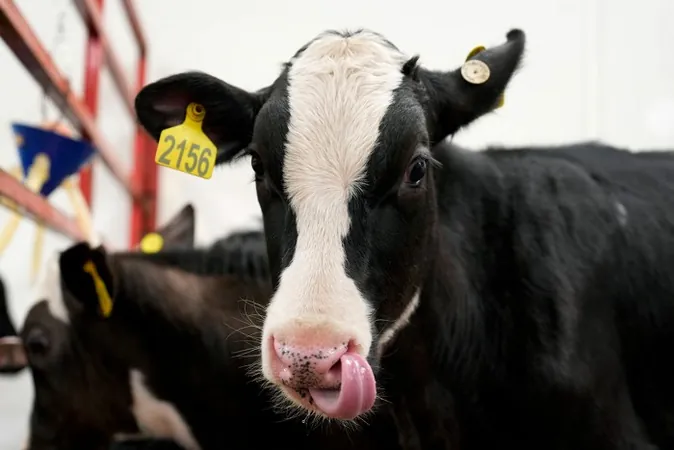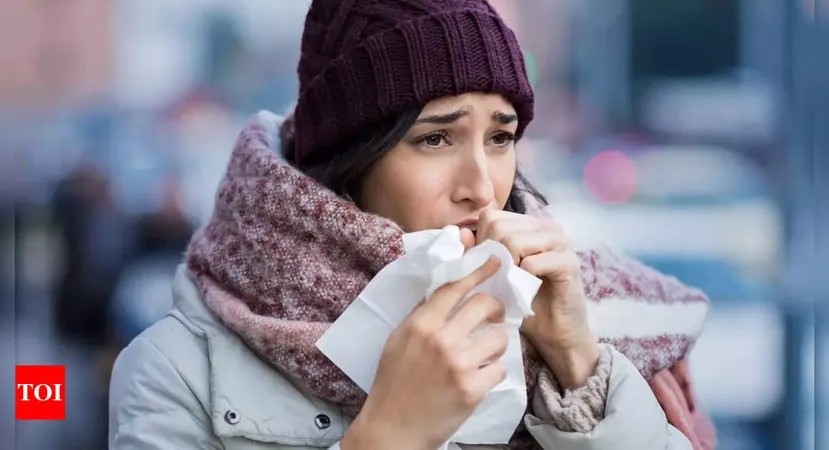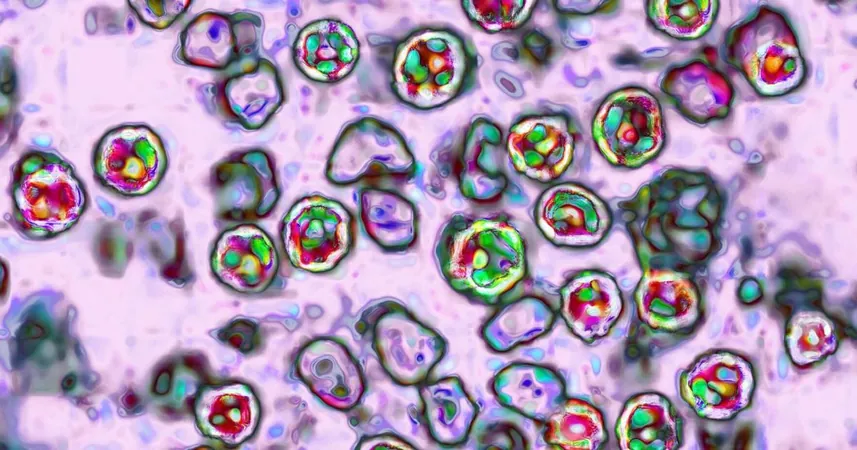
Unlocking Life-Course Immunization: The Untapped Goldmine for Sustainable Healthcare
2024-12-16
Author: Olivia
Vaccination: Protecting Generations
Childhood vaccination has been a monumental success, saving millions of lives and enhancing the long-term educational and economic prospects for communities. According to new research by the Office of Health Economics (OHE), the benefits of immunization extend well into adulthood. It reveals that adult vaccination programs can yield impressive socioeconomic returns—up to 19 times their initial investment. Despite such compelling data, adult vaccination remains inconsistent across the globe, with many countries allocating under 0.5% of healthcare budgets to immunization programs, heavily favoring pediatric initiatives. This oversight represents a critical opportunity we cannot afford to miss.
A Solution for Healthy Aging
With projections indicating that by 2030, one in six individuals will be aged 60 or older, the need for adult immunization has never been more urgent. Older adults often face weakened immune defenses, rendering them susceptible to diseases such as influenza, pneumonia, and shingles. Vaccines can dramatically enhance their quality of life, reduce hospital admissions, and alleviate the pressure on our already strained healthcare workers.
Countering the NCD Epidemic
Non-communicable diseases (NCDs), including heart disease, cancer, and diabetes, remain the leading global causes of death, accounting for nearly 75% of fatalities every year. Individuals living with chronic conditions are particularly vulnerable to complications from infectious diseases like influenza and COVID-19. Studies reveal that the flu significantly increases the risk of heart attacks, but flu vaccinations can cut this risk by nearly 45%. Immunizing individuals with NCDs is paramount to reducing hospital costs, preventing severe complications, and protecting their overall health.
Tackling Antimicrobial Resistance through Vaccination
Vaccines also play a crucial role in the global fight against antimicrobial resistance (AMR), effectively curtailing the spread of bacterial infections and decreasing the need for antibiotics. The World Health Organization highlights that vaccines could prevent over 500,000 AMR-related deaths and lower antibiotic consumption by about 2.5 billion doses, saving healthcare systems up to $30 billion in costs.
Boosting Economic Stability and Productivity
Investing in adult immunization not only promotes individual health but also strengthens economic stability by keeping adults in the workforce longer. A healthier population can contribute vigorously to the economy, engage more in community activities, and support their families. The WifOR Institute estimates that cardiovascular diseases alone account for a significant percentage—4-5%—of Europe's GDP due to societal costs. If even a fraction of these costs can be mitigated through effective vaccination strategies, the potential for economic growth could increase by as much as 1.7%.
Innovation and Access: Breaking Down the Barriers
As the world grapples with an aging population and various health challenges, the need for widespread vaccination has become urgent. Unfortunately, only a limited number of countries incorporate vaccines for all age groups. For instance, despite the WHO's recommendation for pneumococcal vaccines for older adults, only 31 countries currently offer these vaccinations. Barriers such as insufficient awareness, fragmented healthcare policies, and growing public skepticism hinder our progress toward universal vaccine access.
Conclusion: The Call to Action for Global Healthcare
Addressing these challenges requires not only investment but also a cultural shift in how we perceive adult vaccinations—consider them a long-term investment in health, economic productivity, and societal well-being. Moving forward, inclusive discussions highlighting the value of immunization are critical to promoting understanding and appreciation of these vital healthcare tools. By unlocking the full potential of life-course immunization, we can pave the way for a healthier, more sustainable future for all.









 Brasil (PT)
Brasil (PT)
 Canada (EN)
Canada (EN)
 Chile (ES)
Chile (ES)
 España (ES)
España (ES)
 France (FR)
France (FR)
 Hong Kong (EN)
Hong Kong (EN)
 Italia (IT)
Italia (IT)
 日本 (JA)
日本 (JA)
 Magyarország (HU)
Magyarország (HU)
 Norge (NO)
Norge (NO)
 Polska (PL)
Polska (PL)
 Schweiz (DE)
Schweiz (DE)
 Singapore (EN)
Singapore (EN)
 Sverige (SV)
Sverige (SV)
 Suomi (FI)
Suomi (FI)
 Türkiye (TR)
Türkiye (TR)